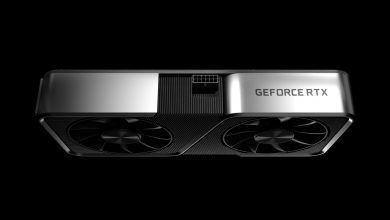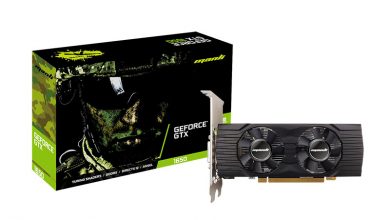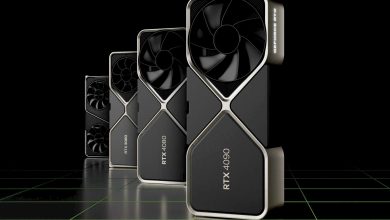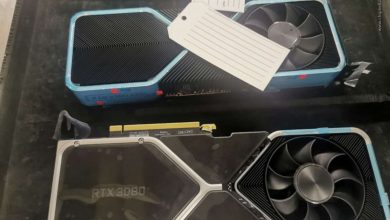
Back in September, Nvidia announced that it planned to acquire chip design licenser Arm at the big-ticket price of $40 billion in cash and stock. Microsoft, Google, and Qualcomm have been raising concerns to regulators about Nvidia’s Arm acquisition, according to reports by CNBC and Bloomberg. The companies have approached regulators in the US, EU, UK, and China, reportedly with concerns that Nvidia could change how Arm licenses out its chipmaking technology.
Google, Microsoft and Qualcomm asked antitrust regulators to squash Nvidia’s acquisition, according to a Bloomberg report on Friday. The companies reportedly raised concerns that Nvidia’s purchase of Arm could limit their access to its designs — which are the basis for chips inside many of the world’s mobile phones — or force them to pay more.
Nvidia has pledged that it won’t use its control over the company to change how it interacts with other businesses. Writing to the Financial Times, Nvidia CEO Jensen Huang said he could “unequivocally state that Nvidia will maintain Arm’s open licensing model. We have no intention to ‘throttle’ or ‘deny’ Arm’s supply to any customer.”
Nvidia’s rivals argue, however, that keeping Arm neutral and not using its tech to Nvidia’s own gains isn’t what the company would be incentivized to do — especially not after paying $40 billion for it. Restrictions on licensing, however, would hurt the companies that benefit from having the ability to license Arm’s technology. Google and Microsoft are reportedly working on their own Arm-based chips, and Qualcomm’s processors are based on the architecture.
For its part, Nvidia has argued that the acquisition is about driving AI forward, which is an area Nvidia has focused on heavily, from its machine learning-powered upscaling on its graphics cards to its work in self-driving cars. Arm’s low-power technology could help Nvidia spread AI into more places, but the company will also have to figure out what to do with everything else Arm does — mainly, powering almost every cellphone in existence as well as holding the key to computer companies moving away from Intel.
Regulators are also apparently looking closely at the deal to determine whether it would give Nvidia too much power in the chipmaking business: according to CNBC the Federal Trade Commission has asked Nvidia and Arm to give it more information, and it could be talking to “other companies who may have relevant information.”
Meanwhile, UK and EU officials have promised to “thoroughly investigate” the deal. It’s very likely that they will hear many objections, not just from Google, Microsoft, and Qualcomm, but from others in the chipmaking industry who are concerned about their open-licensing agreement with Arm being affected by the merger.
These companies have experience with regulators and anti-competitive behavior. Qualcomm has had to pay several fines in the hundreds of millions and sometimes billions of dollars to authorities in China, South Korea, and the EU for anti-competitive licensing policies. Microsoft, of course, had its big monopoly case in the ‘90s, where it went up against the US government, and Google has recently been the focus of growing antitrust sentiment in the US and EU.
Nvidia says it wants to help Arm grow and expand into more markets.
“As we proceed through the review process, we’re confident that both regulators and customers will see the benefits of our plan to continue Arm’s open licensing model and ensure a transparent, collaborative relationship with Arm’s licensees,” an Nvidia spokesperson said via email Friday.
In the U.S., the deal is under review by the Federal Trade Commission, which has opened an in-depth investigation of the merger and has sent information demands to third parties, according to a person familiar with the matter. The FTC declined to comment.
The changing leadership of the FTC could make winning approval tougher for Nvidia. The commission is generally split 2-2 along party lines at the moment, with Democratic commissioner Rebecca Kelly Slaughter holding the acting chair position. Power will shift to the Democrats when U.S. President Joe Biden picks two candidates to fill an open seat and the seat held by Commissioner Rohit Chopra, who has been nominated to take over the Consumer Financial Protection Bureau.
Deals like Nvidia’s acquisition of Arm, known as vertical mergers, are typically seen as less worrisome in the eyes of antitrust enforcers because the companies don’t compete head to head. But that view has come under fire from advocates of more aggressive antitrust enforcement who say regulators have downplayed the competitive harm from such deals.
Slaughter’s elevation signals a tougher approval process for vertical deals. Before taking over the agency, Slaughter criticized new guidelines issued last year by the FTC and the Justice Department outlining how the agencies would evaluate vertical deals. She said the guidelines overemphasize the potential benefits of such mergers and are “inexplicably mute” about the harms.
In December, Slaughter and Chopra said companies should no longer rely on the guidelines as an indication of how the FTC will police vertical deals.
“Moving forward, we need to aggressively enforce against the harms of vertical mergers,” they wrote. “We look forward to turning the page on the era of lax oversight and to beginning to investigate, analyze, and enforce the antitrust laws against vertical mergers with vigor.”





